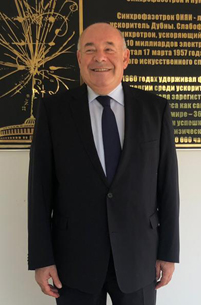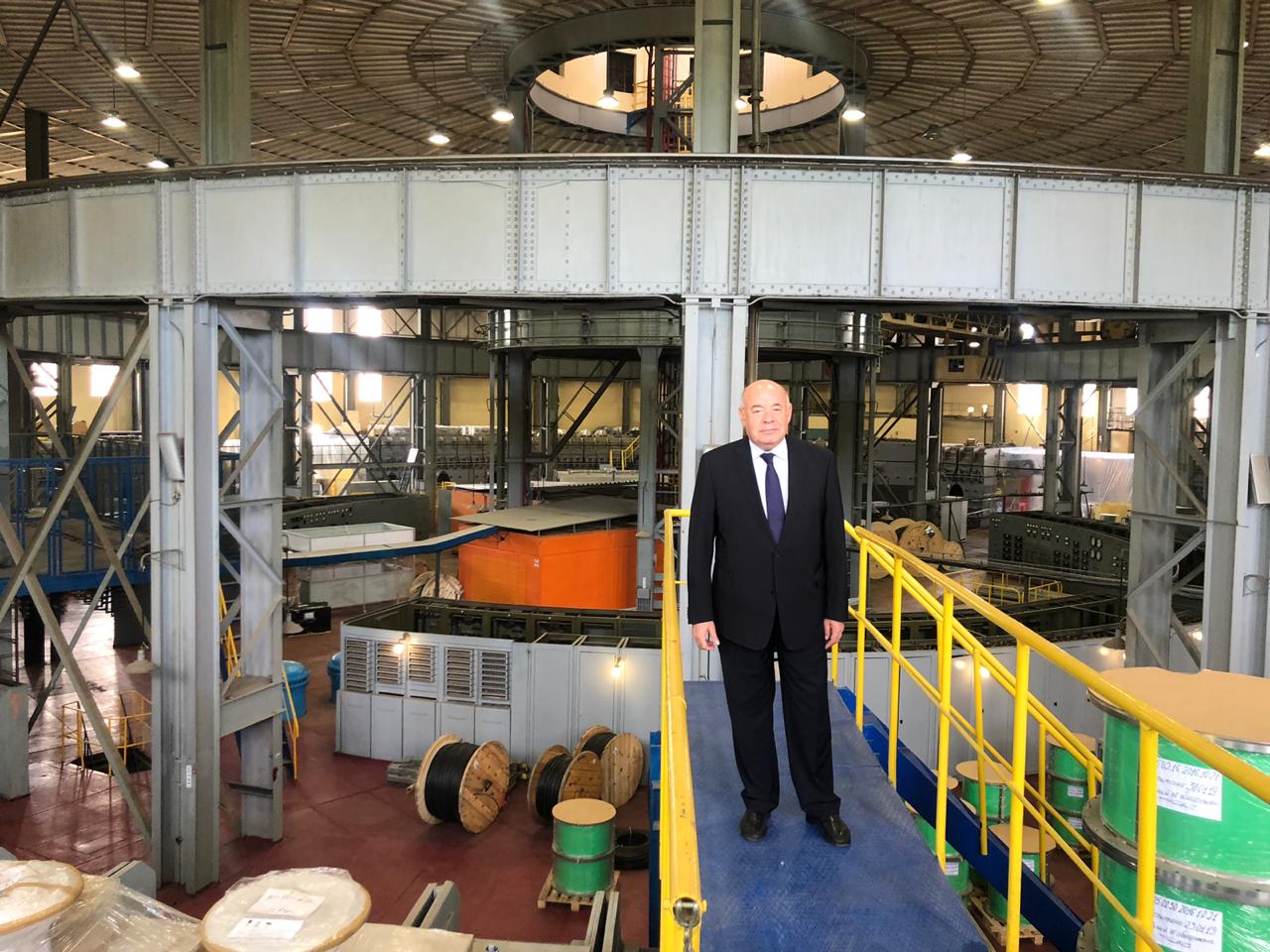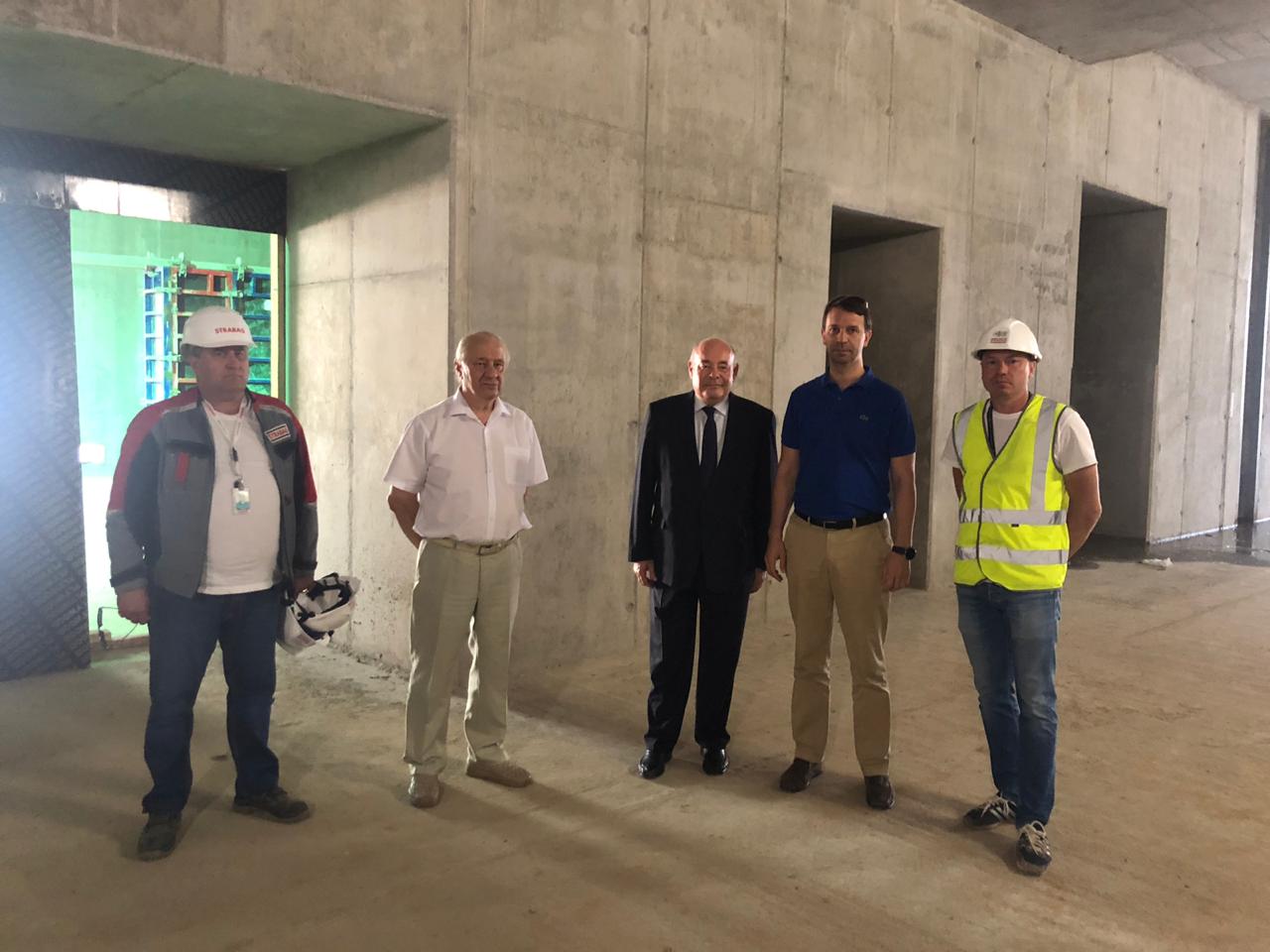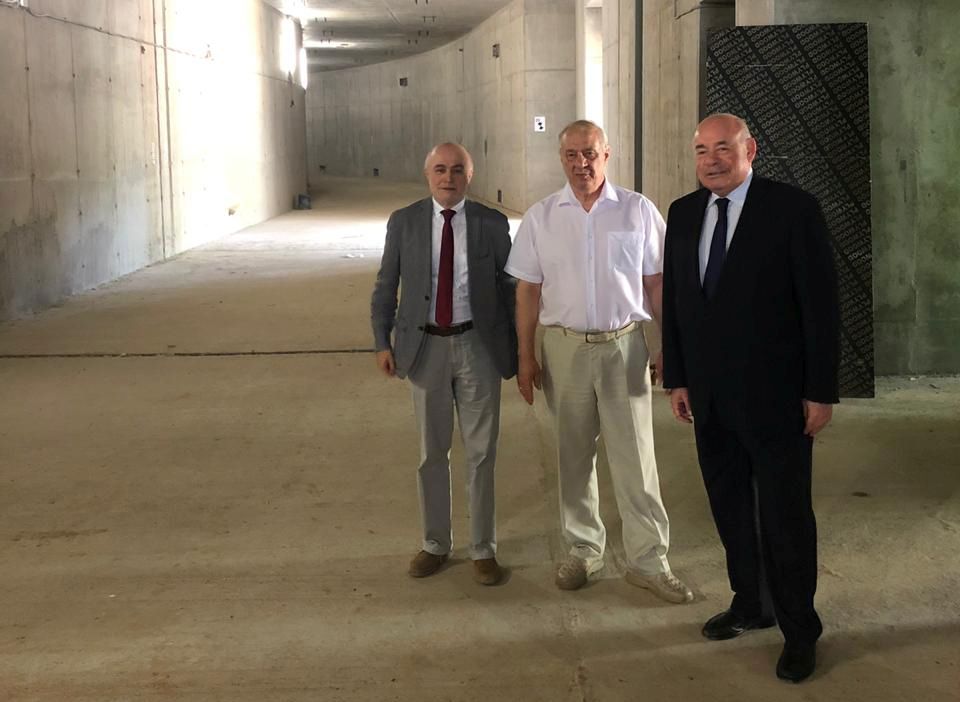Mikhail Shvydkoy: one day of one city
Interview, 01 July 2019
Rossiyskaya Gazeta
Column of Mikhail Shvydkoy
I was going to write this article in the “Rossiyskaya Gazeta” about international issues… About a regular Conference of twin towns of Russia and Germany that is opened today in German Düren famous for not only its almost two thousand years of history but also that in 1900, 43 milliners lived here and in 1909, production of duraluminium was organized for the first time in the world particularly in Düren. I could write about the second Russian-Czech Forum successfully held in MGIMO at which heads of the largest cultural organizations of our countries had professional talks about the possibility of the development of joint projects. It is clear that everyone was alarmed by events that had taken place in Georgia that, as it seems, strained our relations one more time. Moreover, it was difficult not to be enchanted by two really historic events: an exhibition of the collection of S. I. Shchukin in the Pushkin State Museum of Fine Arts and collection of I. A. Morozov in the Hermitage Museum. In short, there was plenty of topics to write about.
 However, last Sunday, I ended up in Dubna, the Joint Institute for Nuclear Research, and understood that it was impossible not to write what Russian scientists of different generations do in this legendary scientific centre. Having read the previous sentence again, I tried to assess my confidence and found out that it cannot be evaluated. It is due to the fact at least that it is impossible for a man with theatrical education to understand what modern physicists do nowadays. A fascinating saying by establisher of the Laboratory of Nuclear Reactions, one of the JINR founders Academician G. N. Flerov came to my mind: “It is necessary to explain a scientific problem to highest managers in the way that is not right but understandable to them. It is a white lie.” I think that was the way JINR hosts in Dubna talked to me on Sunday, although I was not, of course, important manager for them. They just had mercy on me.
However, last Sunday, I ended up in Dubna, the Joint Institute for Nuclear Research, and understood that it was impossible not to write what Russian scientists of different generations do in this legendary scientific centre. Having read the previous sentence again, I tried to assess my confidence and found out that it cannot be evaluated. It is due to the fact at least that it is impossible for a man with theatrical education to understand what modern physicists do nowadays. A fascinating saying by establisher of the Laboratory of Nuclear Reactions, one of the JINR founders Academician G. N. Flerov came to my mind: “It is necessary to explain a scientific problem to highest managers in the way that is not right but understandable to them. It is a white lie.” I think that was the way JINR hosts in Dubna talked to me on Sunday, although I was not, of course, important manager for them. They just had mercy on me.
In Soviet times, freethinking of scientists was highly appreciated in closed cities.
In Soviet times, freethinking of scientists was highly appreciated in closed cities. And of course, hosts tried to attract attention to those pages of history that connected outstanding Soviet physicists with equally outstanding cultural workers of the Soviet Union. They hoped that it would be far easier to understand than the discovery of elements of the 8th period of the Mendeleev’s Table or methods for obtaining super dense matter. I was given a room in the “Dubna” hotel where V. S. Vysotsky and A. A. Voznesensky always stayed. They often visited the JINR Scientists’ Club. They came here to escape government oppression. In fact, the room itself, still in the Soviet style, looked like a memorial museum, and you could feel that you turned out here not justifiably.
It is known that Dubna is an island. In recent times, it was the island of freedom of some kind, and its inhabitants highly appreciated it. A. N. Sissakian in his memoirs opening the book dedicated to G. N. Flerov wrote about him: “G. N. was a freedom-loving person of the totalitarianism epoch.” And he appreciated Dubna “for the open international character” of this little town.
In Soviet times, free thinking of scientists was highly appreciated in closed cities where fascinating products were made and the most fantastic projects were developed connected with the defense industry. Ambitious scientific world cognition is impossible without free reasoning. Even in a prison. The Joint Institute for Nuclear Research was established in March 1956 as an open “to the city and the world” international scientific centre that originally joined scientists from eleven countries. Although its establishment two years after the establishment of the European Organization for Nuclear Research (CERN) was some kind of a challenge to the West, even the party leadership did not take a risk to state that there was a special, socialist physics different from capitalistic.
We talk a lot about a crisis in national science and education, but when you have an opportunity to discuss the Bing Bang with Academician Yuri Oganessian, Scientific Leader of the Flerov Laboratory of Nuclear Reactions, a person element 118 was named after, and then visit an enormous construction site of a new collider where super dense particles of the matter will be created – you come to the conclusion that there is no crisis in national nuclear physics. Moreover, you meet young people in the laboratories who have come to Dubna not to make a quick buck.
Fundamental science needs “patient money”. And patient people
“When we had no money for big projects in the 1990s, our specialists went abroad, in the USA or CERN mostly, where there were such projects. For the last 5 years, when we have started the implementation of serious programmes, many of them have returned.” It is clear to JINR Director Academician Victor Matveev, JINR Chief Scientific Secretary Prof. Alexander Sorin, and their colleagues that solving of complex fundamental problems causes a large amount of applied tasks that are rapidly implemented in the industry and provide breakthroughs in the economy. Without JINR, it would have been impossible to provide safety of space equipment, understand the nature of many diseases, and etc. Famous “Flerov membranes” have given and give extra-budgetary resources necessary to the Institute. However, fundamental science needs “patient money”. And patient people.
Modern physics is somehow similar to history. Scientists in JINR try to discover the history of the matter that emerged after the Big Bang 13,7 billion years ago. The history of our life, after all. Regardless of political and ideological issues. What else can be more important and fascinating for the humankind?
Article by Mikhail Shvydkoy (Doctor of Art History)
Rossiyskaya Gazeta, Federal issue #136 (7894), 25 June 2019
Photos © JINR
Background information
Mikhail Shvydkoy is now a special representative of the President of the Russian Federation for international cultural cooperation as well as President of the Academy of Russian TV Broadcast. In 2004 – 2008, he headed the federal Agency for culture and cinema. In 2000 – 2004 Mikhail Shvydkoy held the position of Minister of Culture. He is Doctor of Art History, Academician of the Academy of Arts, Creative Union of Russian writers, theatrical workers, journalists, and a laureate of the State Prize of the Russian Federation in literature and arts.


